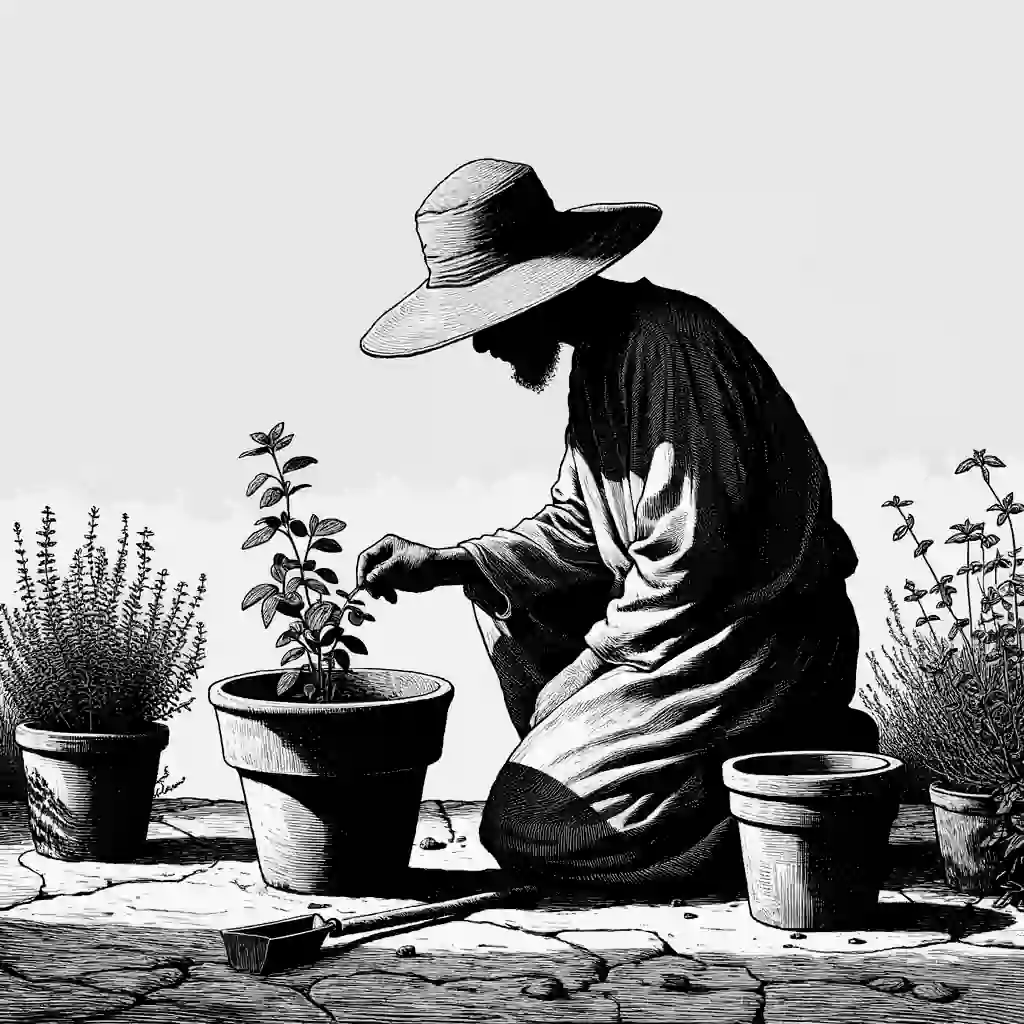Herb gardening is a rewarding and fulfilling hobby that allows individuals to cultivate their own aromatic and flavorful herbs right at home. Whether you have a sprawling backyard or just a small balcony, herb gardening is a versatile pastime that can be adapted to various spaces and skill levels. In this Hobby Page, we will explore the world of herb gardening, from its rich history to practical tips for beginners, and even the potential to turn your hobby into a source of income.
Overview & History
Herb gardening has a long and fascinating history, dating back to ancient civilizations. People have been cultivating herbs for their culinary, medicinal, and aromatic properties for thousands of years. In ancient Egypt, herbs were used in religious ceremonies, while the Greeks and Romans used them for cooking and healing. During the Middle Ages, monasteries played a pivotal role in preserving and growing herbs for both culinary and medicinal purposes.
Today, herb gardening has evolved into a popular hobby worldwide, with people growing a wide variety of herbs for cooking, crafting herbal remedies, and simply enjoying the beauty and fragrance of these plants.
Who Will Enjoy Herb Gardening?
- Culinary Enthusiasts: If you love to cook and savor dishes with fresh, homegrown ingredients, herb gardening is perfect for you. Freshly harvested herbs can elevate the flavors of your meals.
- Nature Lovers: Herb gardening allows you to connect with nature and enjoy the satisfaction of nurturing plants. It’s an ideal hobby for those who appreciate the outdoors.
- Health and Wellness Enthusiasts: If you’re interested in natural remedies and herbal teas, growing your own herbs can provide a steady supply of medicinal plants for various purposes.
- Creative Crafters: Herbs can be used in a variety of crafts, such as making potpourri, herbal wreaths, or scented sachets. If you enjoy crafting, herb gardening can be a valuable resource.
Equipment and Materials
Starting a herb garden doesn’t require extensive equipment, making it accessible to beginners. Here’s what you’ll need:
- Containers or Garden Bed: Choose pots, raised beds, or containers with good drainage, or create a dedicated herb garden in your yard.
- Soil: Use well-draining soil enriched with compost to provide essential nutrients to your herbs.
- Seeds or Plants: You can start with seeds or purchase young herb plants from a nursery to get a head start.
- Sunlight: Most herbs thrive in full sunlight, so choose a sunny spot for your garden.
- Watering Can or Hose: Regular watering is crucial to keep your herbs healthy.
- Gardening Tools: Basic tools like a trowel, pruners, and gardening gloves will come in handy.
Beginner’s Guide
Getting started with herb gardening is easy. Follow these steps to create your own herb garden:
- Choose Your Location: Select a sunny spot with well-draining soil for your herb garden.
- Select Your Herbs: Decide which herbs you want to grow. Common choices include basil, rosemary, thyme, mint, and parsley.
- Prepare the Soil: If you’re planting in the ground, prepare the soil by adding compost. If you’re using containers, fill them with potting mix.
- Plant Your Herbs: Plant seeds or young plants according to the instructions on the seed packets or plant labels.
- Water Regularly: Keep the soil consistently moist, but not waterlogged.
- Prune and Harvest: As your herbs grow, prune them to encourage bushier growth. Harvest the leaves as needed for culinary or medicinal use.
- Enjoy Your Herbs: Incorporate your homegrown herbs into your cooking, crafting, or wellness routines.
Tips & Tricks
Here are some handy tips to help you succeed in your herb gardening journey:
- Companion Planting: Some herbs, like basil and oregano, can naturally repel pests from your garden. Consider companion planting with other vegetables and flowers.
- Container Gardens: If you have limited space, opt for container gardening on a balcony or windowsill. Many herbs thrive in pots.
- Harvesting: Regularly harvest your herbs to encourage growth and ensure you have fresh herbs available.
- Preservation: Learn how to dry or freeze excess herbs to use during the off-season.
- Soil Testing: Periodically test your soil’s pH levels to ensure your herbs have the right growing conditions.
- Learn About Each Herb: Understand the specific needs and uses of each herb you’re growing. Different herbs may require slightly different care.
Can Herb Gardening Make Money?
While herb gardening can be a fulfilling hobby, it can also generate income if you choose to sell your herbs, herbal products, or even offer gardening services. Here are some ways you can potentially make money from herb gardening:
- Selling Fresh Herbs: You can sell fresh herbs to local markets, restaurants, or directly to consumers.
- Herbal Products: Create herbal teas, seasonings, or herbal remedies and sell them online or at local craft fairs.
- Garden Workshops: Share your expertise by offering gardening workshops or classes in your community.
- Herb Garden Design: Help others design and set up their own herb gardens.
Herb Gardening Resources
To further enhance your herb gardening experience, here are some valuable resources:
- The Old Farmer’s Almanac – Herb Gardening
- National Gardening Association – Herbs
- Herb Society of America
- HobbyFinder Community – Connect with fellow herb gardening enthusiasts and share your experiences and tips.
In conclusion, herb gardening is a versatile and enjoyable hobby that can be adapted to various lifestyles and interests. Whether you’re a culinary enthusiast, nature lover, or crafty creator, herb gardening offers something for everyone. With a bit of knowledge and care, you can cultivate a thriving herb garden and enjoy the numerous benefits it brings to your life.






